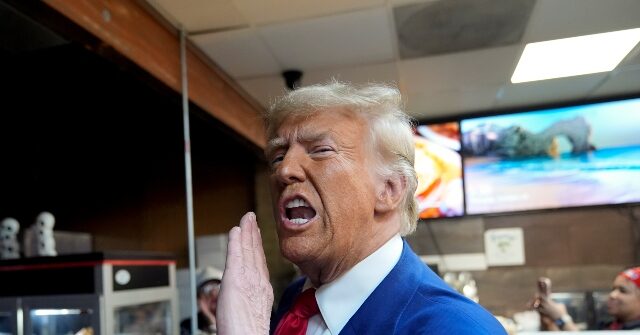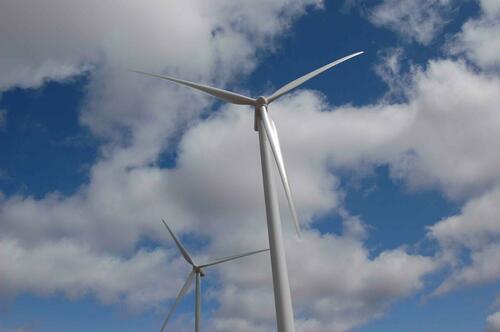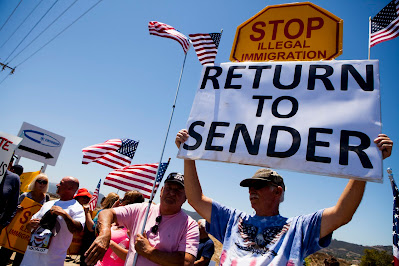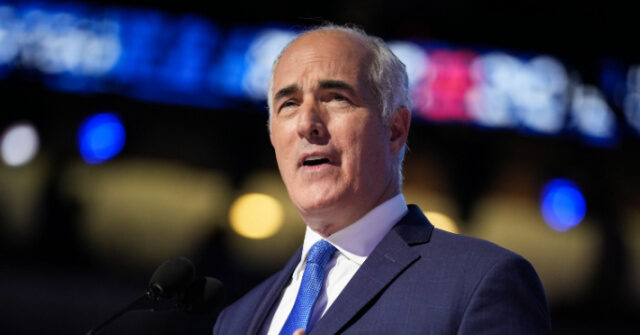
Trump’s Economic Revolution vs. Harris’s Elitist Rearguard
William F. Buckley famously said he’d rather trust the government of the United States to the first 400 names in the Boston phone book than the faculty of Harvard University.
That sentiment was brought to mind by the arrival, just two weeks ahead of the presidential election, of a letter from 23 Nobel prize-winning economists backing the policies and candidacy of Kamala Harris. The illustrious group represents more than half of the living U.S. recipients of the Nobel Prize for economics, according to CNN.
“While each of us has different views on the particulars of various economic policies, we believe that, overall, Harris’ economic agenda will improve our nation’s health, investment, sustainability, resilience, employment opportunities, and fairness and be vastly superior to the counterproductive economic agenda of Donald Trump,” the letter said.
The American people, of course, overwhelmingly disagree. As we detailed earlier this week, most polls show that Donald Trump is very strongly favored over Harris on economic issues. The past couple of days have seen even more polls affirming this.
Trump Is Preferred on Taxes, Small Business, and Tariffs
CNBC’s All America Economic Survey found that Trump leads Harris by a margin of 42 percent to 24 percent on the question of which candidate would make them better off financially. Trump has actually gained ground on this question since it was asked in the March survey, when 39 percent said they’d be better off if Trump won, and 23 percent said they’d be better off with Joe Biden.
The numbers are not much different when confined to the battleground states, where 44 percent chose Trump and 29 percent chose Harris.
The survey also asked who would be better as “strengthening the economy in your community.“ Forty-six percent chose Trump and 38 percent chose Harris. In the battleground states, Trump gets 49 percent of registered voters and Harris 41 percent. (Interestingly, eight percent of voters nationally say neither would be good for the local economy but only four percent of battleground state voters agree. Nationally, four percent say they aren’t sure and in battleground states two percent aren’t sure.)
On business taxes, Trump is up eight points nationally, with 47 percent support to Kamala’s 38 percent. In battleground states, Trump is even further ahead, at 52 percent to Kamala’s 38 percent. On helping small business, the numbers are basically the same. Nationally 47 percent say Trump would be better and 38 percent say Harris would be. In battleground states, Trump gets the same share, and Harris gets 39 percent.
On individual taxes, Trump is also dominant nationally but not as far ahead in the battlegrounds. In the national poll, Trump leads with 48 percent saying he would be better on the issue of personal taxes, and 38 percent saying Harris would be. In the battleground states, Trump is only ahead by three percentage points, 45 percent to 43 percent.
Perhaps the most entertaining part of the CNBC poll, however, is the question on tariffs. Harris has made decrying Trump’s tariff proposals a major focus of her campaign, misleadingly claiming that they would be a “national sales tax.” And it was the only policy singled out by those economic grandees in their letter. “His policies, including high tariffs even on goods from our friends and allies and regressive tax cuts for corporations and individuals, will lead to higher prices, larger deficits, and greater inequality,” they wrote.
So how do American voters feel about tariffs? Nationally, 54 percent say they think Trump will do a better job on “dealing with tariffs on goods from other countries.“ Harris gets support from just 32 percent of voters. In the battlegrounds, it’s only a little tighter, with Trump at 50 percent and Harris at 38 percent.
Inflation Is Still the Top Issue
The latest Economist/YouGov polling tells a similar story. It found that just 34 percent said the economy would get better if Harris was elected, and 43 percent said it would get worse. For Trump, 44 percent said the economy would get better, and 38 percent said it would get worse.
That poll also finds that inflation is the top issue for voters, with 25 percent naming it as their most important. After that is immigration, at 13 percent, and jobs and the economy, at 11 percent. When asked who will be better on inflation, 46 percent of voters say Trump will be, and 39 percent say Harris will be. On “jobs and the economy, Trump is ahead with 45 percent to Harris’s 40 percent.
According to CNBC’s poll, which also found that inflation is the top issue, voters who say inflation and the cost of living and the economy overall are the top issues favor Trump by 13 points.
“Even as the data show inflation has theoretically been slowing down, it has become more important in people’s minds over the course of the last three quarters, not less important,” Jay Campbell, partner at Hart Research, the Democratic pollster for the survey, told CNBC.
The Financial Times polling had shown Harris was ahead in the economy—making it one of the only polls finding that result. (We discussed a similar finding by the Associated Press’s poll earlier this week.) But now Trump has taken the lead in that poll, even if only slightly. Trump now gets 44 percent versus Harris’s 43 percent. A month ago, Trump had 41 percent, and Harris 42 percent in that poll.
The FT poll also shows Trump expanding his lead among voters on the critical question of financial well-being. Forty-five percent of respondents now believe they would be better off financially under Trump’s leadership, a gain of five points compared to the previous month. In contrast, 37 percent favor Harris on this issue.
When it comes to the economy, Harris may have the Nobel laureates in her corner, but Trump’s got the American people.
Originally Posted At www.breitbart.com
Stay Updated with news.freeptomaineradio.com’s Daily Newsletter
Stay informed! Subscribe to our daily newsletter to receive updates on our latest blog posts directly in your inbox. Don’t let important information get buried by big tech.
Current subscribers:






